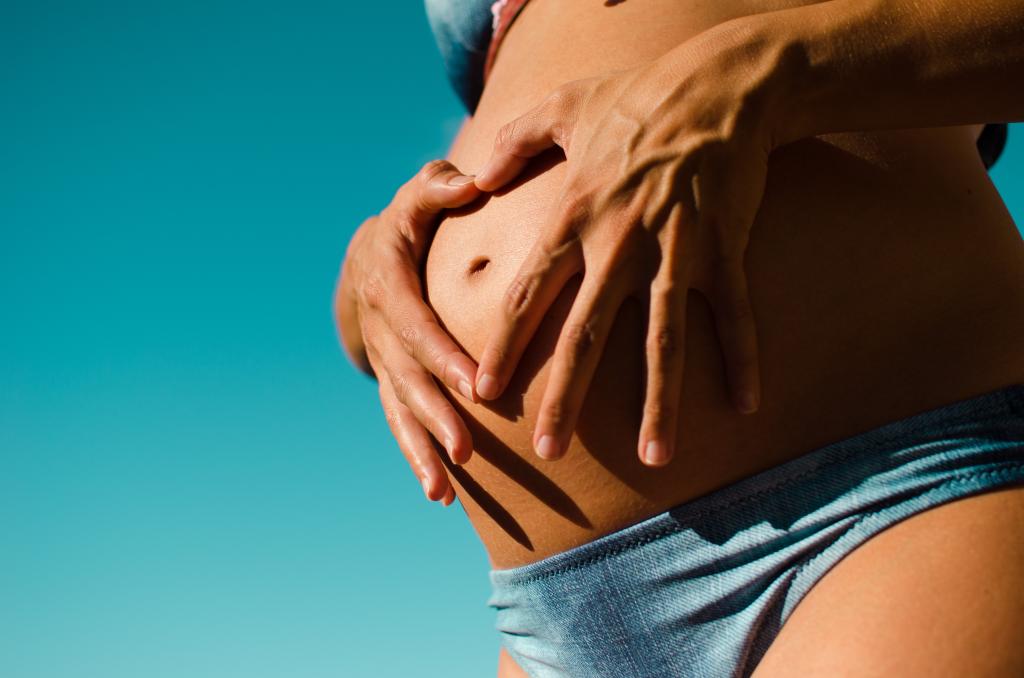
Do you know you can have ovarian cysts and not even know about it? They can occur as a result of normal ovarian function and are common with women who have regular menstrual cycles.
An ovarian cyst is a fluid-filled sac located inside or on the surface of the ovary. Generally they grow up to one to four centimetres in size.
There are two main types of non-cancerous ovarian cysts:
Follicular cysts – Every month, during a woman’s menstrual cycle, an ovary releases an egg. This egg grows inside a small sac called a follicle. As soon as the egg is matured the follicle opens and releases the egg. Follicle cysts occur when the follicle doesn’t break open and continues to grow into a cyst. Often, these types of cysts have no symptoms and go away in one to three months.
Corpus Luteum cysts – These types of cysts form if a follicle sac doesn’t shrink after it releases an egg, and then reseals itself. The sac then fills with fluid causing a cyst, sometimes causing pain and bleeding between periods. These cysts usually go away in a few weeks.
Other non-cancerous ovarian cysts include endometriomas (caused by endometriosis), cystadenomas (filled with watery fluid) and dermoids (present from birth).
It’s a relief to know that most ovarian cysts are harmless and cause little to no discomfort. Generally, ovarian cysts will go away on their own, but in some cases the cysts can break open and cause pain and bleeding.
In very rare cases ovarian cysts are cancerous. Cancerous ovarian cysts are more common in older women and are known as ovarian cancer. Read our blog on ovarian cancer to identify the symptoms to look out for. You should always speak to your GP if you suspect you may have an ovarian cyst.
Ovarian cysts are one of the symptoms some women experience with PCOS, but not all women have cysts with PCOS.
This hormonal condition affects between one in five to one in ten women of reproductive age. In some cases of PCOS, many fluid-filled cysts grow on the outside of the ovaries and can cause symptoms including missed or irregular periods, excessive facial or body hair, hair loss on scalp, fertility problems, acne, enlarged ovaries, high blood pressure and mood changes.
PCOS is a leading cause of infertility, yet many women do not know they have it. If you are concerned about PCOS, book an appointment with one of our Specialist Women’s Health GPs and read our blog article about the 5 myths about PCOS.

Generally ovarian cysts won’t affect your ability to fall pregnant, however it does depend on a number of factors. It’s usually only cysts associated with conditions such as endometriosis or PCOS that can affect your fertility.
The most common causes of ovarian cysts include hormonal imbalances, medications used to help women ovulate, abnormal cell growth, PCOS, endometriosis, pregnancy or severe pelvic infections.
In most cases, you won’t experience any symptoms with ovarian cysts. That said, you should see your GP as soon as possible if you are experiencing any of the following symptoms:
If a cyst bursts, it can cause severe pain. Cysts that cause an ovary to twist can also cause nausea and vomiting. You should always seek emergency care by phoning 000 or reporting to a hospital emergency department, if you experience severe symptoms.
If you have symptoms of ovarian cysts and make an appointment with one of our Specialist Women’s Health GPs, they will conduct a pelvic exam and may send you for an ultrasound, hormone level test or blood test.
The majority of ovarian cysts will go away on their own without any treatment, but your GP will schedule regular check-ups. If the cyst is painful, or there are worries that it could be malignant, your doctor may recommend a laparoscopy.
At Grace Private, we believe every woman should live her best life. With our multidisciplinary approach, our team of Gynaecologists, Specialist Women’s Health GPs, and Dietitian, can all help if you’re experiencing symptoms of ovarian cysts. You can book an appointment online or call (07) 5594 7632.

